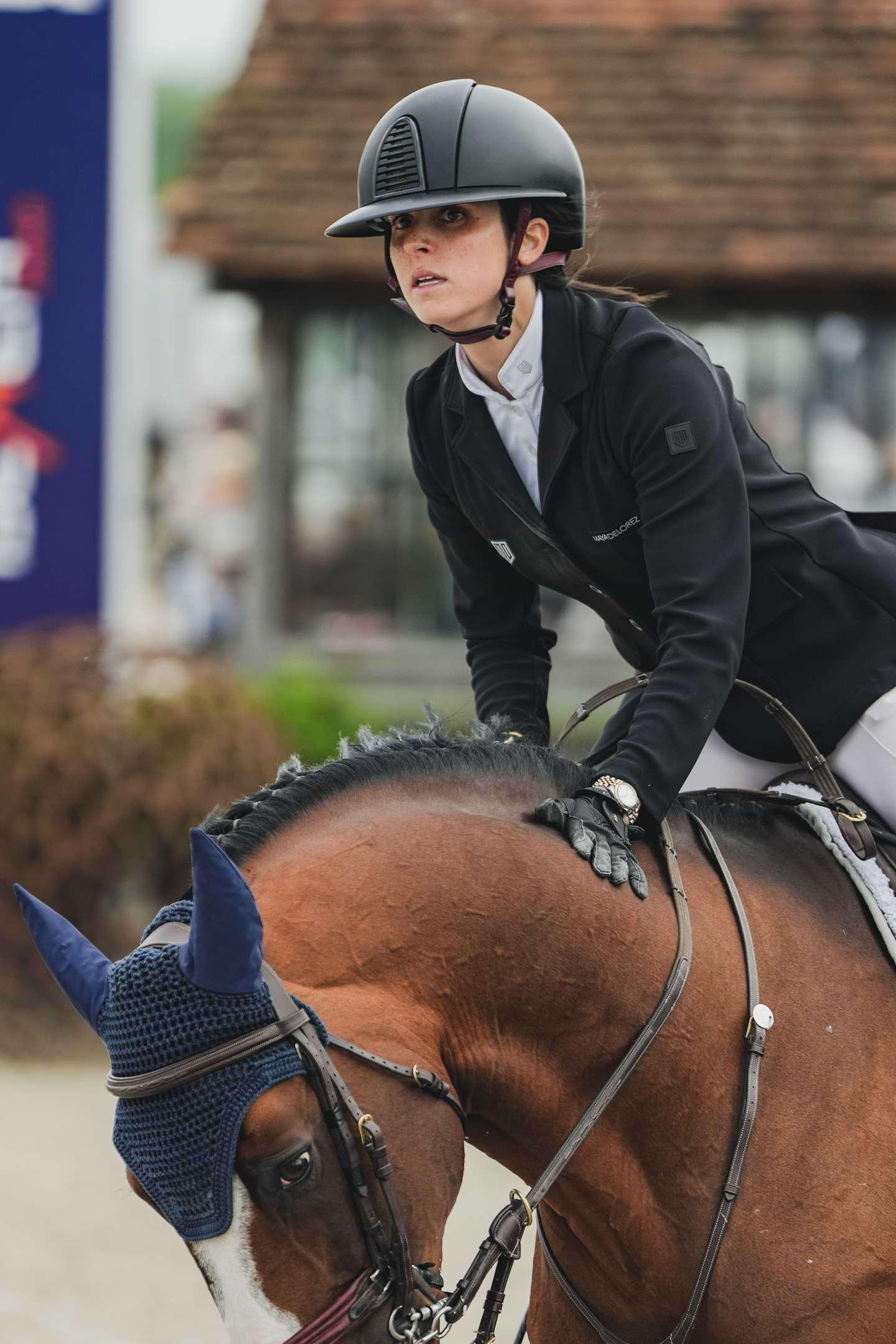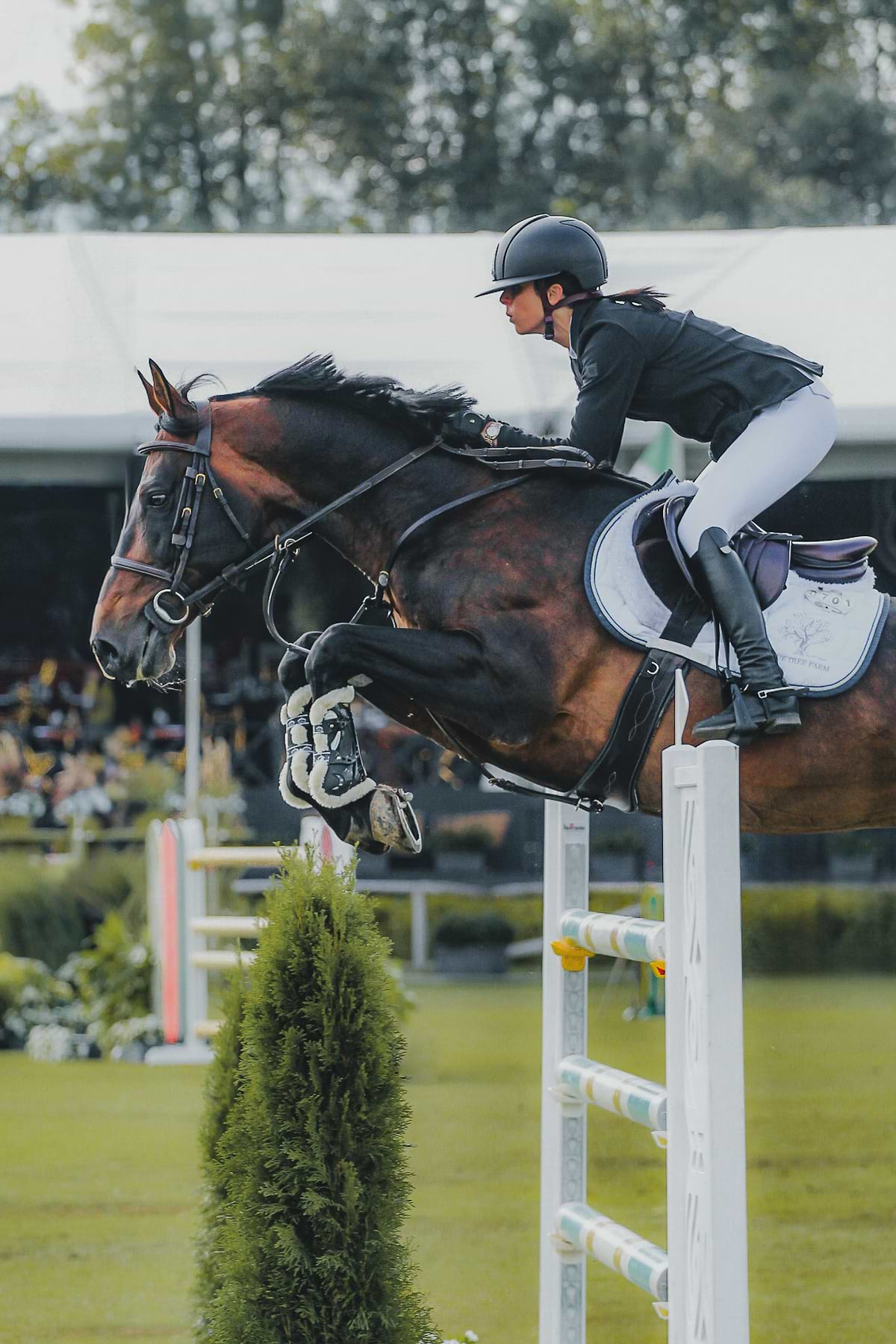Ioli Mytilineou on
Setting Goals and How to Achieve Them
Show jumper Ioli Mytilineou shares her strategy behind setting and achieving her goals, and how she handles challenges along the way.
Saga
Sun 18 Feb - 24

Ioli Mytilineou on
Setting Goals and How to Achieve Them
Show jumper Ioli Mytilineou shares her strategy behind setting and achieving her goals, and how she handles challenges along the way.
Saga
Sun 18 Feb - 24
Born and raised in Greece, Ioli Mytilineou moved her horses to Belgium in 2016 to pursue her dream of becoming one of the best show jumpers in the world. With that goal in mind, the 26-year-old has come a long way in making her dreams come true. Since 2016, she has done quick work of reaching the top of the international show jumping circuit. Not only did she represent Greece at the World Equestrians Games in 2022, but she has also made appearances in 5* Grand Prix, European championships, and World Cups.
When it comes to setting goals and achieving them, we can think of no better person to ask than Ioli. With clear long- and short-term goals, Ioli knows what’s up when it comes to having high ambitions and working towards achieving them. We sat down with Ioli to talk more about her long-term goals and the strategy behind them.
Would you say that you’re a goal-oriented person?
– I would say I am goal-oriented, but not goal-consumed. Like most athletes, I have the big goals I aspire to achieve, with a rough idea of what it would take to get there.
What are your current long-term goals in equestrian sports?
– The Rolex Grand Slam series is one I would like to pursue at some stage, as it is one of the pinnacles of our sport. It combines a string of the world’s best shows, which I am keen to be a part of.
Can you walk us through your thought process when setting a goal and your plan to reach it?
– I normally aim for something that will take work, but where I feel confident it will be attainable. Working backward from the goal works well for me, as I can plan out my show schedule as well as the downtime that is required. Me and my trainer, Sean, try to pick specific shows at which we would ideally like to peak and work towards them, as opposed to a large quantity with the hope that one might work out. This is the method we have found to be most beneficial for us both as well as my horses and team.
What’s some advice you would give to equestrians striving to reach their goals?
Your goals are personal. It’s okay to not have as big of a goal as your friend/partner may have.
Create goals that feel obtainable for you. This does not mean they have to be easy, but that your goals are not based on someone else’s, or on the goal that you think you should have.
Make a plan on how to achieve your goal. This might include how you will train yourself and your horse, focusing on the basics, which competitions you choose (if your goal is result-based), as well as the overall management of your horse.
Trust the process. Even if it feels as though you shouldn’t.
“If you truly believe it’s right, stick to it and the result will show itself. Ultimately, consistency is always key.”
– Ioli Mytilineou
How do you keep yourself motivated?
– Planning my show schedule definitely helps my motivation, as it ignites feelings of potential success. Each competition we choose is an opportunity to use the work we’ve put in to produce a good result.
What are some challenges that you have faced, and what lessons have you learned from them?
– Challenges are easier to come by than anything else and I’ve definitely had my fair share. A big test was moving my horses from Greece to Belgium and expecting the wins to follow. Not taking into consideration how big of a level change it was, I began to take the losses personally. After feeling as though I wasn’t good enough and trying out other non-horse-related options, I came back to the sport determined to make it work. Years later, I could not be happier with the decision I made to put the work into what I love most. Making this transition taught me about the significance of not giving up when you know what you want.
Can you list the three most important things to keep in mind when you’re working towards your goals?
The welfare of my horses. They have to be feeling their best for me to even begin aiming for anything.
Staying focused on your goal and not allowing yourself to get sidetracked. With a busy schedule, it is easy to forget where you’re going. You might have to remind yourself of what you’re working towards.
Make sure you and your team are on the same page. The people around you need to be aware of your goals and how they can help you achieve them.
How do you handle failure?
– Failure is not something I tend to handle, solely because I don’t believe it exists in our sport. Mistakes cannot be avoided, but once made, they should be learned from. In my opinion, this is the most effective way to think of disappointments, as it leads to being constructive rather than potentially destructive.
“The lesson learned each time a target is not met will always be far bigger and more important than the feeling of not having met it.”
– Ioli Mytilineou
